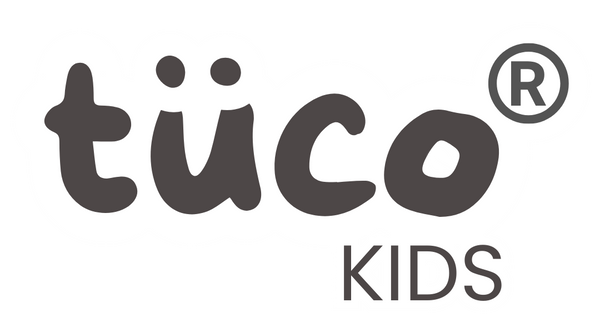
Can Soap Irritate the Intimate Areas in Young Children?
Parents often assume that if a soap is labeled “mild” or “baby,” it must be safe for all parts of a child’s body. But the intimate area in young children is far more delicate than other skin, making it prone to irritation from the wrong soaps. Understanding why this happens and how to prevent it can help parents keep their child comfortable and healthy.
What Can Cause Irritation?
Soaps that are not formulated for children often have alkaline pH levels and harsh detergents. These disrupt the skin barrier, leading to dryness and sensitivity. In the intimate area, where the skin is naturally more vulnerable, the effects are stronger.
The intimate skin is thin, has more nerve endings, and is naturally more sensitive than arms or legs. Common causes of irritation include:
-
Harsh Soaps or Cleansers: Soaps with sulfates, parabens, or high pH can strip away protective oils.
-
Fragrances and Dyes: Synthetic fragrances or colorants can trigger burning or itching sensations.
-
Over-Washing: Frequent scrubbing or using too much soap removes natural moisture.
-
Adult Soaps Used on Kids: These are designed for tougher skin and are too strong for children.
-
Residue Left Behind: Not rinsing soap thoroughly can leave irritants on the skin.
What Kind of Irritation Can Be Caused?
Children may experience:
-
Redness around the area
-
Burning or stinging sensations
-
Itching
-
Dryness or peeling
- In some cases, secondary infections if irritation leads to scratching
How Long Does the Irritation Last?
Mild soap-related irritation often subsides within 24–48 hours once the trigger is removed and skin is allowed to heal. Persistent irritation, however, may last longer and should be evaluated by a pediatrician, especially if symptoms include pain, swelling, or discharge.
How to Keep Intimate Areas Clean: A Guide for Young Children
Teaching children about hygiene from an early age helps them stay healthy and confident as they grow. When it comes to intimate care, the focus should be on gentleness, safety, and awareness, not over-cleansing. Here’s how parents can guide young children safely:
-
Use Mild, Child-Safe Cleansers
Always choose soaps or washes specifically made for children. Avoid products with strong fragrances, alcohol, or harsh chemicals that can irritate delicate skin.
-
Limit Cleansing to Once a Day
Over-washing can strip natural oils and cause dryness. A gentle wash once daily during bath time is enough unless the child gets unusually dirty or sweaty.
-
Encourage Proper Rinsing
Teach kids to rinse thoroughly with clean, lukewarm water to remove all soap residue as leftover soap can cause itching or irritation.
-
Pat Dry, Don’t Rub
After bathing, use a soft towel to gently pat the area dry. Rubbing can cause friction and discomfort, especially for sensitive skin.
-
Choose Breathable Fabrics
Cotton underwear allows airflow and reduces moisture buildup. Avoid tight or synthetic fabrics that can trap heat and sweat.
-
Change Clothes After Active Play
After sports, swimming, or outdoor play, changing into clean, dry clothes helps prevent bacterial growth and irritation.
-
Teach Personal Hygiene Early
For children above 5, start simple conversations about wiping front to back and the importance of keeping private areas clean. Make it a positive, shame-free learning habit.
-
Avoid Scented Wipes or Powders
These may seem convenient but can upset the skin’s natural pH balance. Stick to unscented, baby-safe wipes only when necessary.
What Soaps Are Better for Young Kids?
The right soap should:
-
Be pH balanced (around 5.5) to protect the skin barrier
-
Be free from parabens, sulfates, and harsh preservatives
-
Avoid strong fragrances or dyes
-
Contain moisturizing agents like oats, coconut oil, or shea butter
- Be specifically made for children
Tuco Kids offers a thoughtful range of gentle cleansers and moisturizers made especially for children’s delicate skin. Each product is formulated to cleanse without stripping natural moisture and to hydrate without feeling heavy or greasy.
-
Sensitive Skin Bathing Bar – Enriched with oats, rice water, licorice, and allantoin, this bar calms irritation and restores moisture. With a gentle pH of 5.5, it is ideal for sensitive areas.
-
Dull Skin Bathing Bar – Made with turmeric, Kakadu plum, coconut oil, and shea butter, this bar keeps skin nourished and bright while staying safe for children.
Both are sulfate-free, paraben-free, and non-toxic, making them better suited than adult soaps for daily use.
Why Moisturizing the Body Matters After Washing
Even with the gentlest soap, cleansing removes some natural oils from the skin. Moisturizing after a bath is key to replenishing this hydration and preventing dryness, especially in sensitive areas.
Benefits of Moisturizing for Kids
-
Locks in hydration immediately after bathing
-
Creates a protective barrier against dryness and irritation
-
Reduces itching and discomfort
-
Keeps skin soft, smooth, and healthy
- Builds lifelong skincare habits
Formulated for delicate skin, Tuco Kids lotions provide lasting hydration without heaviness. Each blend helps restore smoothness and maintain the skin’s natural balance.
-
Tuco Kids Summer Body Lotion – Lightweight, aloe vera and almond oil-based hydration for everyday use.
-
Tuco Kids Dull Skin Lotion – With turmeric and Kakadu plum, this lotion nourishes while brightening dull or tired skin.
Both lotions are non-toxic, gentle, and safe for children’s delicate skin, ensuring parents can moisturize confidently without risking irritation.
To Conclude,
Yes, soaps can irritate the intimate areas in young children, but this is usually preventable. Avoiding harsh, adult soaps and choosing child-safe, pH-balanced soaps like Tuco Kids Bathing Bars makes a big difference. Following up with gentle moisturizers ensures that kids’ skin stays healthy, soft, and irritation-free.
With the right routine, bath time becomes safe, soothing, and supportive of children’s long-term skin health.

